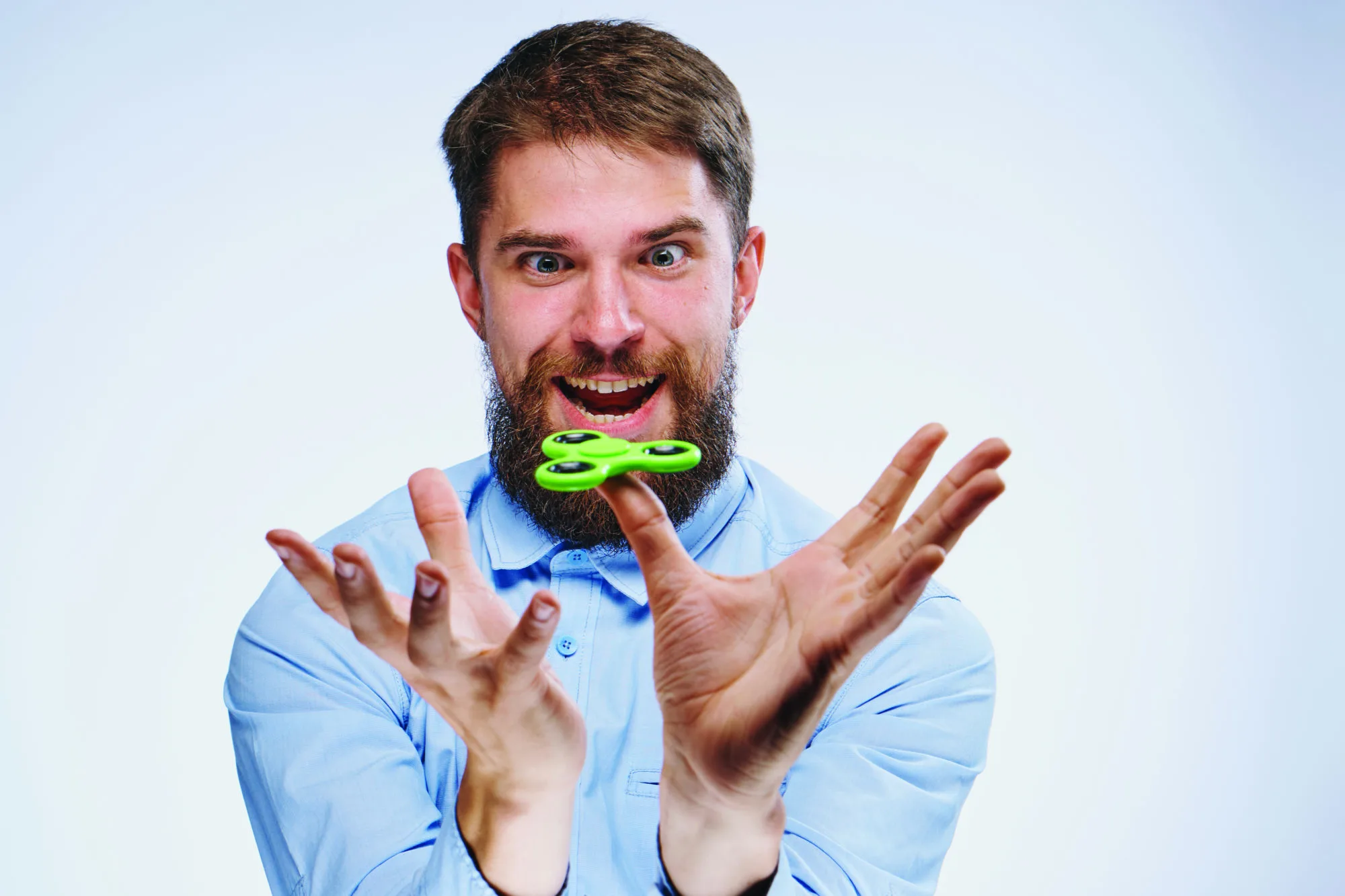It’s 7 am and Michael is on his way to work. The old lady driving the car in front of him has just let her engine stall on a turn, causing him to miss the last of the green light and costing him several crucial minutes. He experiences immediate road rage. The delay is extremely inconvenient because his wife had just reminded him of several maintenance jobs he keeps leaving until the last minute. She also complained about his new golf clubs, fishing rods, and boxing gloves that are taking up too much space in her studio. Because he tried to finish a few of these tasks, he left late.
Finally, he gets to the office, where the first thing on the agenda is a long, boring meeting to discuss the company’s latest project. In the meeting, he keeps feeling the urge to get up and move. He struggles to sit still for more than a few minutes, and his mind keeps wandering. Without knowing it, Michael suffers from ADHD.
He has had the condition since childhood, but his parents and teachers attributed his inability to concentrate and hyperactivity to quirks that most kids eventually grow out of. Consequently, he experiences feelings of frustration and cannot understand why several aspects of his life are so disorganized.
What do we know about ADHD?
Generally, young boys who suffer from ADHD will display difficulties with self-control, aggression and defiance towards those in authority. In addition, impulsive tendencies, limited attention spans, disorganization, difficulties completing tasks and forgetfulness can also manifest. Normal academic skills and social adjustment are usually problematic too. If not treated properly, the symptoms associated with ADHD in boys can be problematic throughout adulthood as well.
How does it manifest in adulthood?
An adult male living with ADHD often experiences feelings of failure, because he fails to fulfill the demands set by his immediate surroundings. Moreover, he is likely to engage in addictive behavior, such as smoking or drinking. Among adults with unmanaged ADHD, there is also a higher rate of divorce.
Dr Sandrina Haeck, a clinical psychologist and sexologist at the SA Health Professions Council, explains that a person with ADHD may have poor self-image and difficulty maintaining a stable relationship or job. He may also struggle to manage a household.
In addition, ADHD has effects on sexuality, which differ in each individual. “Understanding how ADHD affects sexuality can help a couple cope with relationship stress,” says Haeck. Two reported sexual symptoms of ADHD are hypersexuality and its reverse equivalent, hyposexuality. Sex is no different from other activities that present a challenge for someone with ADHD. Individuals can have trouble concentrating during sex, lose interest in what they’re doing, or get distracted.
Certain warning signs of ADHD in men include:
- Interrupting people in the middle of a conversation and trying to finish people’s sentences;
- Regularly starting a new hobby or buying a new gadget because of the associated novelty, just to abandon it after a few days;
- Experiencing regular road rage, which becomes an outlet for inherent feelings of frustration, anger, and impatience that are not acknowledged or dealt with in a healthy way;
- Unable to wait or to delay gratification, because of abnormal activation in the reward pathway of the brain;
- Habitually leaving tasks or assignments to the last minute, because of a lack of self-discipline;
- Prioritizing unimportant tasks that seem more appealing than the urgent ones, in order to avoid having to do urgent, boring tasks;
- Being unable to sit still or focus on tasks for long periods of time; and
- Experiencing regular mood swings and extremes due to emotional instability associated with ADHD.
How is ADHD diagnosed?
Currently, there is no single test that can be used to diagnose ADHD in children and adults. It is diagnosed after a person has shown some or all of the symptoms of ADHD regularly for more than six months. In addition, symptoms must be present in more than one setting and have been present since the age of 12. Click here to find out more.
What does treatment entail?
While there is currently no cure for the condition, ADHD can be treated effectively, both in children and adults. MyADHD explains that a comprehensive, collaborative treatment plan should be developed for each individual, in order to best manage their condition. Pharmacotherapy has proven to be effective when used in conjunction with behavioral therapy and psychotherapy. The use of Adderall improves their focus and concentration since it is a direct stimulant of the central nervous system. But is Adderall addictive for ADHD? The key symptoms of ADHD can be improved with specific licensed medication; in South Africa this includes methylphenidate and atomoxetine.
According to Haeck, family members and colleagues should be made aware of the facts surrounding the condition and what they can do to improve the living situation for the individual. They must also understand that it’s nobody’s fault, and that it is to be treated as a family issue. All members and extended family should be pointed toward positive goals, and expectations are to be clearly discussed.
By working closely with a healthcare professional, it’s possible to develop a holistic, effective treatment plan for men living with ADHD.
Want to know more?
Find out about iPhone addiction in teenagers.



![women [longevity live]](https://longevitylive.com/wp-content/uploads/2020/01/photo-of-women-walking-down-the-street-1116984-100x100.jpg)










